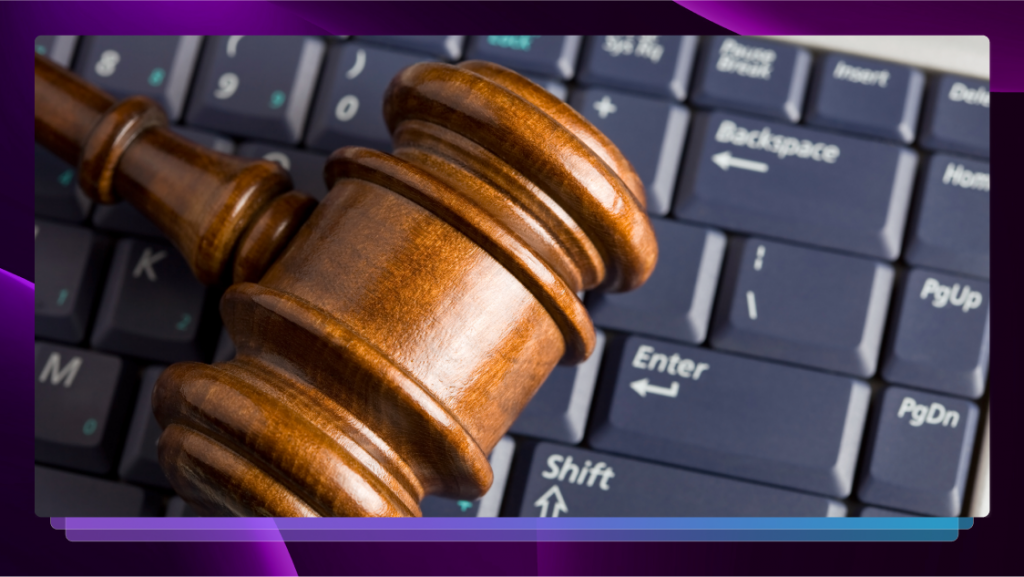The Importance of Lawful Video Clip Depositions in Modern Legal Solutions: What You Ought to Know
Legal video depositions have actually come to be necessary in today's legal landscape. They offer a multidimensional view of witness testaments that standard records simply can not match. By recording both spoken and non-verbal communication, these depositions boost the general understanding of a witness's integrity. Nevertheless, the effectiveness of video clip depositions hinges on various variables, including compliance with lawful standards and ideal methods (legal video depositions). Exploring these components exposes their real importance in modern-day legal solutions
What Are Lawful Video Depositions?
Legal video clip depositions function as a crucial tool in the litigation procedure. They involve taping witness testaments in a video style, recording both non-verbal and verbal communication. This approach allows attorneys to document the temperament, expressions, and reactions of witnesses, supplying a richer context for the testament. Typically carried out in a regulated setting, these depositions are led by attorneys who ask concerns while a stenotype reporter documents the discussion. The resulting video can be essential for test preparation, as it allows legal representatives to analyze the integrity of witnesses and improve their strategies. Additionally, legal video depositions can be used in different legal contexts, varying from civil disputes to criminal cases. The auditory and visual elements of video depositions enhance the presentation of evidence, making it a crucial component in the modern lawful landscape. On the whole, they add considerably to the efficiency and effectiveness of lawful proceedings.

Advantages of Video Depositions Over Traditional Methods
Video clip depositions provide many benefits contrasted to typical approaches of taking witness statements. One considerable benefit is the ability to capture both audio and aesthetic aspects, supplying a much more extensive record of the witness's statements. This twin style boosts quality and enables legal professionals to reference specific nuances during test prep work. Furthermore, video depositions promote remote involvement, making it much easier for witnesses who might be unavailable for in-person looks due to geographical restraints or wellness issues.Moreover, video depositions can expedite the total deposition process, reducing the moment and expenses connected with travel and logistics. They additionally improve ease of access, as recorded depositions can be conveniently shared among lawful teams and referenced at any moment. This comfort contributes to much better case monitoring and preparation. On the whole, video depositions stand for a modern, reliable method to collecting witness statements, straightening with the progressing demands of the legal career.
The Role of Body Movement and Tone in Testimonies

In legal video clip depositions, body movement and tone play important functions in sharing a witness's trustworthiness and reliability. Nonverbal cues can offer understandings right into a witness's emotion, influencing exactly how their testament is regarded. Understanding the impact of these aspects is crucial for attorneys and jurors alike when reviewing the reliability of a testimony.
Nonverbal Interaction Insights
While spoken interaction is often emphasized in legal statements, nonverbal hints such as body movement and tone play an important function in communicating integrity and feeling. Viewers of depositions might keep in mind that a witness's pose, motions, and face expressions can greatly influence perceptions of reliability. For example, consistent eye contact might signify self-confidence, while avoiding gaze could suggest deceit or pain. The tone of voice-- its rate, volume, and pitch-- can present sensations of sincerity or unpredictability. Lawyers must be in harmony with these nonverbal signals, as they usually give important context that matches talked words. Recognizing these subtleties can boost the effectiveness of depositions and affect the result of legal proceedings.
Psychological Tone Influence
The psychological tone shared throughout legal testimonies substantially affects how a witness is regarded. Body language, singing inflections, and faces play essential functions in forming the narrative of a testament. A witness displaying confidence via stable eye call and a calm tone can infuse a sense of dependability and engagement. On the other hand, indicators of stress and anxiety, such as fidgeting or a shaky voice, might lead to skepticism concerning their account. The nuances of emotional expression can influence the analysis of facts, making it vital for attorneys to recognize these signs. In video depositions, the acoustic and visual components integrate, stressing the significance of emotional tone in conveying genuineness and reliability within the lawful process.
Integrity and Trustworthiness
An important variable in developing integrity and trustworthiness during statements depends on the witness's body movement and intonation. Viewers often rely upon non-verbal cues-- such as eye get in touch with, stance, and gestures-- to evaluate a witness's sincerity. A witness who maintains eye contact and displays open body language may be regarded as even more reputable and truthful than one who avoids eye contact or shows up shut off. Furthermore, tone of voice plays an important function; a consistent, calm tone can reinforce the reliability of the testimony, while fluctuations in pitch or quantity may raise questions. Eventually, the combination of body movement and singing tone considerably influences just how a witness's declarations are received and interpreted in a lawful context.
Ideal Practices for Performing Video Depositions
Conducting video clip depositions needs careful preparation and execution to assure a clear and reliable presentation of testimony. Initially, it is essential to choose a silent, well-lit location to decrease diversions and protected optimum video quality. The equipment needs to be evaluated in advancement, including electronic cameras, microphones, and illumination, to stay clear of technical concerns during the deposition.Next, celebrations entailed should assess the format and treatments beforehand, seeing to it that every person comprehends their duties. The deponent ought to be oriented on the process, including exactly how to react clearly and concisely.Additionally, preserving a specialist behavior throughout the session is necessary. This includes avoiding talking over each other and verifying that all concerns are routed appropriately. Finally, it is important to record the deposition in a style that enables easy playback and evaluation, preserving the stability of the statement for future usage.
Legal Considerations and Compliance Issues
Exactly how do legal considerations and conformity problems influence the effectiveness of video depositions? Legal professionals should navigate a complicated landscape of policies, guaranteeing that video depositions adhere to jurisdictional guidelines and requirements. Compliance with laws concerning personal privacy, consent, and recording methods is essential. As an example, getting specific authorization from all parties involved is necessary to stay clear of lawful repercussions.Additionally, the admissibility of video proof in court can hinge on conformity with step-by-step demands. Making Read More Here certain that the devices used fulfills technological standards is also essential, as low quality can threaten the deposition's reliability.Moreover, attorneys must be mindful of any type of details state laws that govern video clip depositions, as these can vary significantly. Failure to address these factors to consider can not only threaten the stability of the deposition but also affect the overall situation strategy, inevitably affecting the customer's lawful results.
Just How Video Clip Depositions Impact Court Perception
While video clip depositions can work as powerful devices in legal procedures, their impact on jury assumption is significant. The aesthetic and auditory elements of video clip recordings provide jurors with a much more comprehensive understanding of witness temperament, trustworthiness, and psychological reactions. This multimedia strategy can enhance the jurors' capability to analyze the dependability of statement contrasted to traditional text-based transcripts.Moreover, video depositions permit jurors to observe body movement, intonation, and face expressions, every one of which can impact their interpretation of the witness's statements. The visibility of a witness on display can humanize them, fostering empathy and connection, which might guide jurors' point of views. On the other hand, a witness that shows up untrustworthy or evasive on video clip might bring about adverse perceptions that affect a court's choice. Eventually, the dynamic nature of video clip depositions plays an essential role in forming just how jurors translate proof and reach their judgments.
The Future of Video Depositions in Legal Method
As developments in modern technology proceed to improve the legal landscape, the future of video depositions is positioned for significant development. Innovations such as expert system, online truth, and improved video conferencing tools are expected to streamline the deposition process and improve accessibility. Attorneys might use AI-driven analytics to examine witness reputation and instance toughness a lot more effectively.Moreover, the combination Website of online reality can permit courts to experience immersive simulations of depositions, supplying much deeper context and understanding. Furthermore, the pattern toward remote depositions is most likely to linger, using greater flexibility for lawyers and customers alike.As remote job comes to be progressively normalized, video clip depositions will likely end up being conventional practice, reducing prices and time restrictions connected with typical approaches. Generally, these technological advancements assure to enhance the performance, efficiency, and ease of access of video clip depositions in legal method, ultimately transforming just how attorneys plan for trial.
Frequently Asked Questions
Just How Much Do Legal Video Depositions Typically Price?

Can Video Clip Depositions Be Used in Any Kind Of Type of Situation?
Video clip depositions can be utilized in different kinds of situations, consisting of civil, criminal, and family legislation. Their adaptability allows lawyers to present witness statements properly, adapting to the certain demands of different legal circumstances.
What Tools Is Needed for a Video Deposition?
To carry out a video clip deposition, vital tools consists of a premium electronic camera, microphone, lighting, and a reputable recording tool. In addition, a computer with editing software application might be essential for post-production and formatting the final video.
The length of time Does a Regular Video Clip Deposition Last?
A typical video deposition lasts between 2 to 4 hours, depending on the complexity of the case and the number of inquiries postured. Extensive sessions might take place, yet breaks are usually incorporated for participant convenience.

Are Video Depositions Admissible in Court?
Video depositions are normally acceptable in court, supplied they stick to legal standards and rules of evidence. Their use enhances clarity and preserves witness testimony, assisting in the judicial procedure throughout hearings and trials. Legal video depositions have actually come to be crucial in today's lawful landscape. Furthermore, legal video depositions can be utilized in numerous legal contexts, ranging from civil conflicts to criminal situations. Additionally, video depositions promote remote engagement, making it much easier for witnesses who may be inaccessible for in-person looks due to geographical restrictions or health issues.Moreover, video home clip depositions can accelerate the overall deposition procedure, minimizing the time and expenses associated with traveling and logistics. Making sure that the equipment made use of satisfies technical criteria is likewise essential, as inadequate high quality can undermine the deposition's reliability.Moreover, lawyers need to be aware of any kind of particular state laws that control video depositions, as these can differ significantly. In addition, the pattern towards remote depositions is likely to linger, using greater adaptability for attorneys and customers alike.As remote job ends up being increasingly normalized, video clip depositions will likely become typical method, lowering expenses and time restraints associated with typical methods.